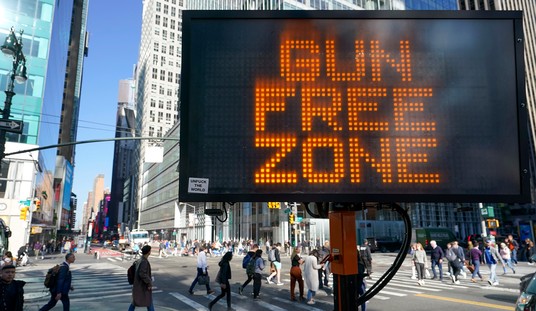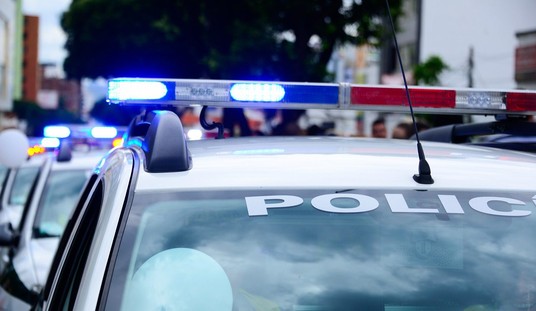The Republican National Convention is still scheduled to take place in Charlotte, North Carolina this August, and some city officials are considering a ban on carrying firearms around the convention site when thousands of delegates descend on the city. The Charlotte Observer spoke to city councilman Malcolm Graham, who says he’s “open” to the idea of a local restriction, which would be allowed under North Carolina law.
During the 2016 RNC, no weapons were allowed inside a security perimeter established by the Secret Service, and the same ban is expected to be enforced inside the perimeter set in Charlotte. Any areas outside of that zone, however, are under the city’s jurisdiction.
As it turns out, Charlotte has an option that Cleveland did not.
In North Carolina, unlike Ohio, state law permits a municipal government to impose firearms restrictions on public property for clearly defined reasons. That property includes streets, sidewalks, parks and government buildings.
Bikers for Trump Director [Dale] Herndon said his group would “respect any ruling of temporary firearms restriction during the RNC.”
The Observer also talked to several law professors who believe that if the city does pass an ordinance banning the carrying of firearms during the RNC, the ordinance would be upheld.
Jon Guze, director of legal studies at the John Locke Foundation, didn’t disagree. The foundation is a conservative-leaning think tank based in Raleigh.
Guze said the Charlotte City Council can restrict the display of firearms in areas where demonstrators are allowed. However, the state has not delegated to the city the power to forbid firearms possession altogether, Guze said.
The Second Amendment can be restricted only in ways that both serve an important public purpose and are also narrowly tailored to serve that purpose, he said.
“The fact that the president and a lot of major political figures will be in Charlotte would almost certainly provide a sufficiently important public purpose to justify some special restrictions to the right to bear arms at the time of the Republican Convention,” Guze said.
I don’t know about that, to be honest. A few years ago, when Washington, D.C. was fighting to keep its ban on carrying firearms in place, one of the arguments used by city officials was that D.C. was a special place where the right to bear arms should be curtailed because of the number of major political figures and other important people who could be a potential target. The D.C. Circuit Court of Appeals rejected that argument in its opinion, noting that residents of big cities, even Washington, D.C., don’t simply forfeit their right to bear arms.
Common-law rights developed over time, and American commentaries spell out what early cases imply: the mature right captured by the Amendment was not hemmed in by longstanding bans on carrying in densely populated areas. Its protections today don’t give out inside the Beltway.
Charlotte officials would argue that that a temporary ban on carrying firearms is not the same as a permanent ban, and that public safety trumps the right to keep and bear arms in special circumstances. Perhaps a court would allow it, but I suspect that Guze is correct when he says that the restrictions would likely only be able to be imposed in certain areas around the convention site, and not throughout the entire city.
At the moment it sounds like this is something city officials are weighing, and that they haven’t actually decided to take the step of trying to impose a gun ban. My hope is that officials will decide to err on the side of the Constitution, but given the political ideology of the majority of city council members, my expectation is that we’ll likely see some restrictions put in place.









Join the conversation as a VIP Member